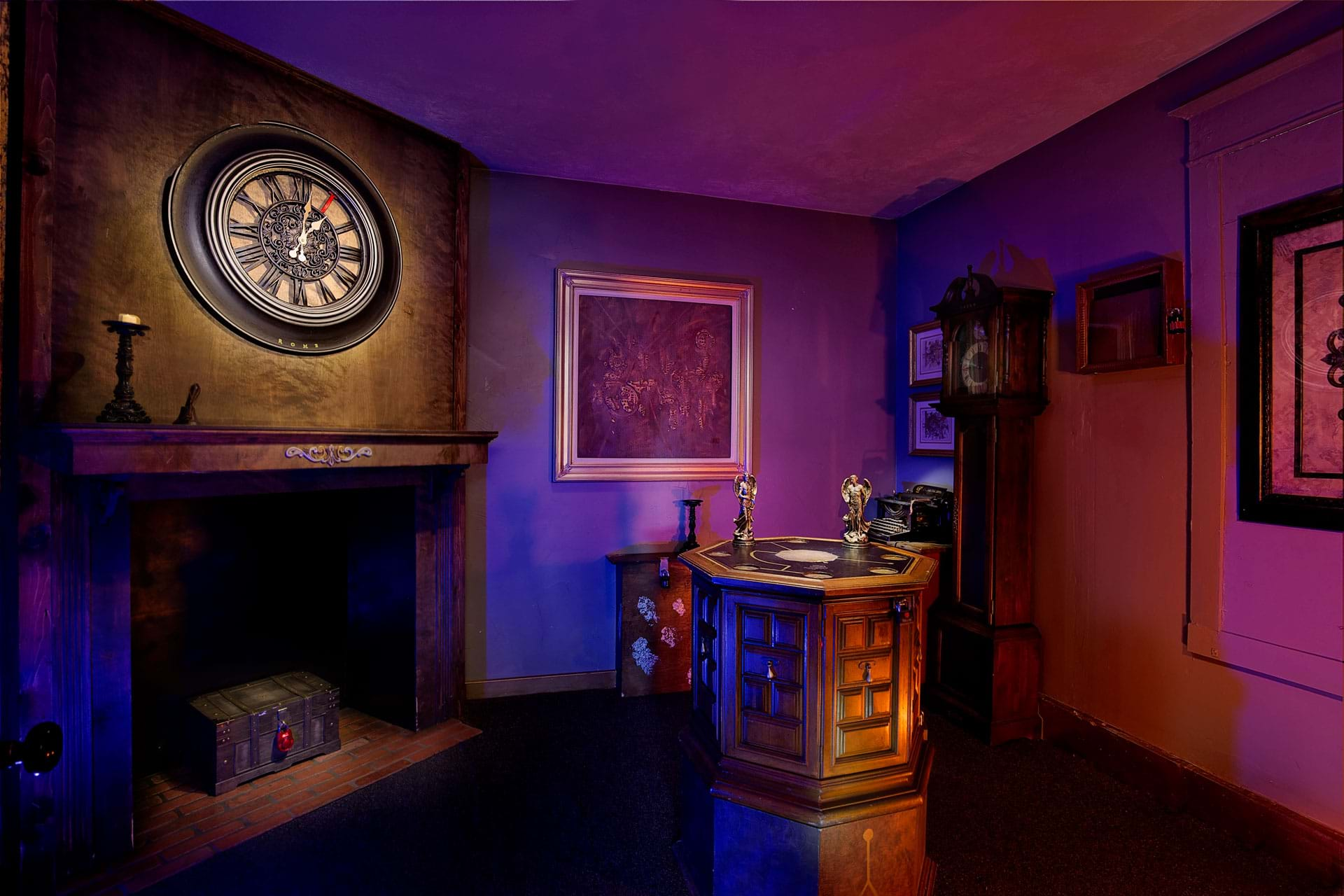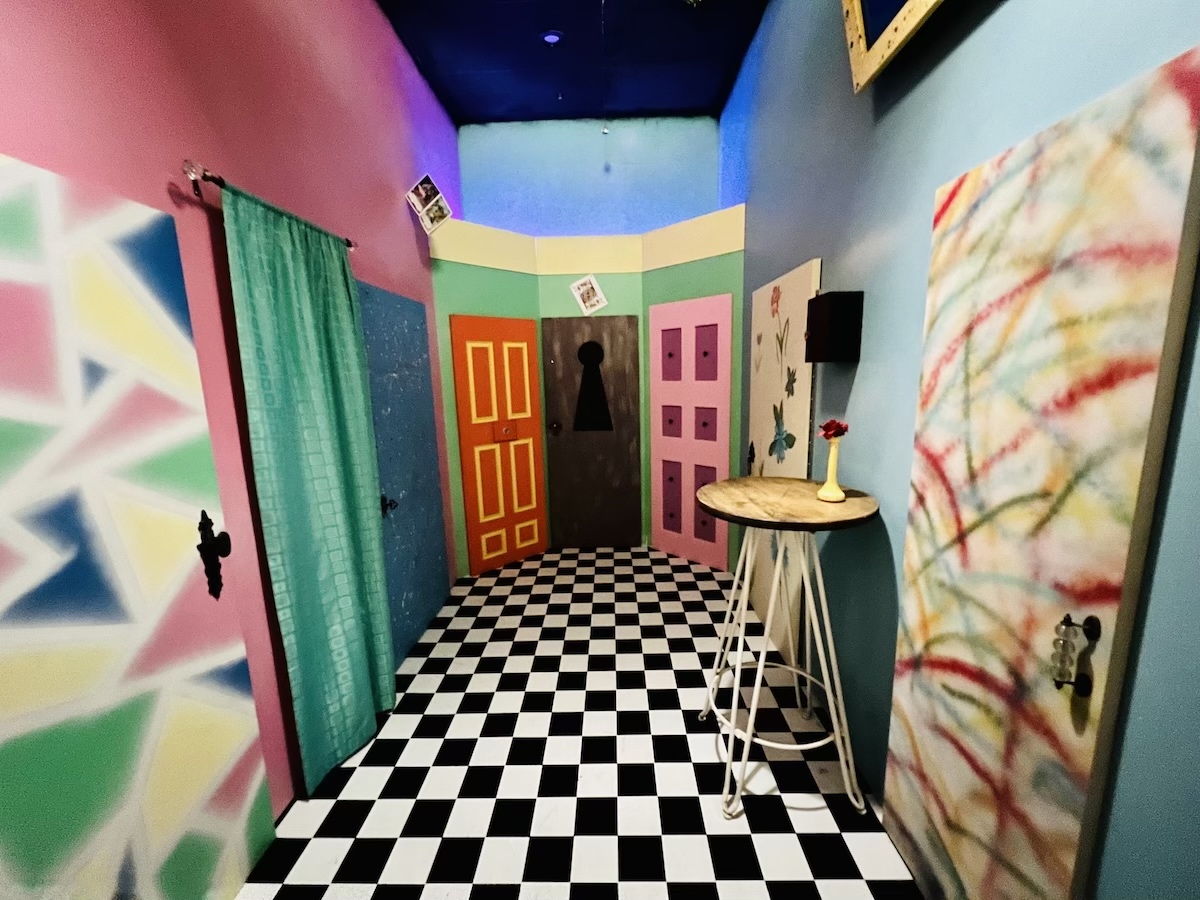Best Escape Room Experience-- Exciting Games and Puzzles for Teams
Best Escape Room Experience-- Exciting Games and Puzzles for Teams
Blog Article
Group Strategies: How to Team up Successfully in a Retreat Area
Groups should proactively listen to each member's understandings, designate roles that straighten with private strengths, and preserve normal check-ins to make certain emphasis and avoid redundancy. By promoting a setting that values communication and adaptability, groups can substantially increase their performance and success rates.
Establish Clear Communication

To help with clear communication, it is vital to designate a main factor of get in touch with for information dissemination. Quick, focused updates from each group participant can keep the team informed without frustrating them with details.

Designate Roles Purposefully
While clear communication establishes the structure for reliable teamwork, assigning duties strategically guarantees that each staff member's toughness are made use of efficiently. In an escape room scenario, the time-sensitive and complex nature of difficulties necessitates a well-organized method to task delegation. By identifying and leveraging individual expertises, teams can enhance their problem-solving capabilities and improve total efficiency.
First, analyze the distinct abilities and characteristics of each participant. For instance, someone with a keen eye for detail could stand out in finding covert things, while a rational thinker could be better suited to resolving problems - best escape room. It's similarly crucial to have a leader who can supervise progression, handle the timeline, and make decisive calls when essential. This role often needs strong organizational and interpersonal skills.
2nd, guarantee that functions are adaptable and adaptable. As brand-new difficulties emerge, the team should have the ability to pivot, reallocating tasks as needed. This versatility helps keep momentum and protects against traffic jams that could occur due to stiff duty tasks.
Inevitably, a tactical strategy to function assignment not just maximizes the strengths of each staff member but additionally promotes a natural setting, driving the group towards an effective escape.
Use Diverse Abilities
Recognizing and harnessing the diverse skills within your team can dramatically raise your performance in a retreat space. Each staff member brings distinct strengths to the table, and efficiently leveraging these capacities can speed up problem-solving and enhance general efficiency. A group participant with strong logical skills may stand out at figuring visit site out complex codes or patterns, while an additional with eager empirical capacities might promptly spot covert clues that others could neglect.
Efficient communication is key to using these diverse abilities. Encourage staff member to voice their insights and ideas promptly, ensuring that all prospective solutions are thought about. This inclusive method cultivates a dynamic atmosphere where imagination and essential reasoning can prosper. In addition, appointing tasks that straighten with each member's staminas can prevent bottlenecks and guarantee that progression is constant.
Additionally, variety in skills usually translates to diversity in thinking styles, which is indispensable in a retreat space setup. While some difficulties might need logical thinking and precision, others may gain from imaginative and association of ideas. By identifying and leveraging this variety, teams can attend to a more comprehensive series of difficulties better, thereby raising their possibilities of an effective getaway.
Manage Time Successfully

Determine noticeable puzzles and divide tasks based on team participants' staminas, guaranteeing that no one is still. This method can aid maintain the team focused and avoid time from sliding away unnoticed.
Furthermore, prevent tunnel vision. If a puzzle is taking also long, turn staff member or carry on to an additional obstacle, returning later with fresh viewpoints. Communication is paramount-- keep every person upgraded on solved challenges and remaining tasks to stay clear of repetitive efforts.
Last but not least, make use of any kind of hints or hints sparingly yet purposefully - best escape room. Recognizing when to request help can save valuable time. By adhering to these time monitoring principles, teams can considerably boost their possibilities of a successful and delightful retreat room experience
Debrief and Mirror
Reflection is a vital facet of group advancement and renovation in the context of escape areas. Once the challenge is completed, whether efficiently or not, it is important for the team to involve in an organized debriefing session. This procedure allows employee to examine their read more efficiency, recognize staminas, and identify locations for improvement.
Start the debrief by discussing what went well. Highlight specific circumstances of effective communication, problem-solving, and partnership. Acknowledging these positive habits strengthens them and urges their repetition in future difficulties.
Following, resolve the challenges encountered. Go over moments of complication, miscommunication, or inefficient approaches. Urge an open and constructive dialogue where group members can share their viewpoints without anxiety of objection. This cultivates a culture of continual enhancement and knowing.
Final Thought
In verdict, successful collaboration in a getaway area is predicated upon clear communication, strategic role jobs, the efficient use of varied skills, and efficient time management. Regular check-ins and organized debriefings are vital for preserving emphasis and promoting continuous improvement. By creating a cohesive and adaptive team atmosphere, the chance of effectively addressing problems and attaining the goal of escaping the space is significantly improved. This approach not just ensures success yet likewise promotes cumulative growth and understanding.
Report this page